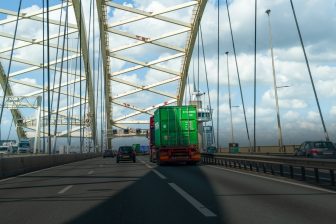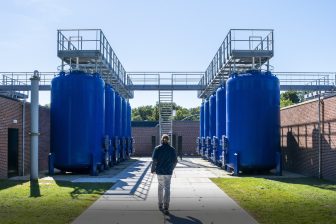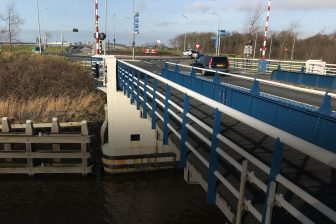US 11 mln dollar for transport sector Rwanda
Washington, United States of America – The World Bank’s Board of executive Directors today approved an International Development Association (IDA) grant of US$11 million for the Transport Sector Development Project.
Estimated to cost a total of US$69 million, the project is supported by a complementary Africa Catalytic Growth Fund* (ACGF) grant in the amount of US$38 million (which was approved by the Regional Vice President for Africa last July 27), while the remaining US$20 million will be provided by the government of Rwanda through the Road Maintenance Fund.
“This project is the result of collaborative work involving the African Development Bank and the European Commission. Its implementation will require even closer collaboration with these partners who are major contributors to Rwanda’s transport improvement program of which the project is an integral part,” said Kingson Khan Apara, World Bank Task Team Leader of the project.
The objective of the project is to improve the quality of Rwanda’s paved road network and to generate sustained employment in rural areas through road maintenance works. It aims to improve road quality by:
- Restoring parts of major road corridors to good conditions through rehabilitation works on the Kigali-Ruhengeri road and maintenance works on about 50% of the 1100 km paved network;
- Establishing a system for sustainable financing of road maintenance;
- Improving management and operational efficiency in sector institutions through the establishment of management information and statistical systems, and targeted training.
The Transport Sector Development Project will also complement other interventions, notably the East Africa Regional Trade and Transport Facilitation Project, whose key objective for Rwanda is to facilitate Rwanda’s integration into the East African Community (EAC), and contribute to the efficiency of the country’s transport corridor through EAC countries to the ports of Mombassa and Dar-Es-Salaam.
“This project is particularly timely given the dire need for Rwanda to improve its main road links as part of an overall strategy to reduce the cost of domestic and internationally traded goods,” said Kingson Khan Apara.
The first component of the Transport Sector Development Project – Paved Road Rehabilitation and Maintenance – is the Project’s biggest component. Valued at US$62.4 million it will support the Government’s objective of export development by strengthening national sections of the two international road corridors leading to the ports of Mombassa in Kenya and Dar-Es-Salaam in Tanzania. Through this component, approximately 83 kilometers of the Kigali-Ruhengeli-Gisenyi road will be rehabilitated and the maintenance of about 550 kilometers of paved trunk roads, including sections of Gatuna-Bugarama, Gitarama-Kibuye and Rusumo-Gisenyi road corridors, will be made. The maintenance works will be undertaken through the execution of multi-year output-based management contracts.
The second component – Sector Governance and Policy Support – will support the improvement of sector governance and transport policy implementation by providing technical assistance for the establishment of performance agreements in sector agencies, by supporting sector policy development and implementation, including stakeholder workshops and seminars relating to transport policy implementation and regional transport cooperation.
The third component – Sector Analysis and Planning Support – will among other things, improve transport planning and monitoring systems through the provision of technical assistance. This component will help establish transport databases and monitoring and evaluation systems in transport agencies. It will also support capacity building through long term in-country masters degree training of at least 50 people chosen from transport agencies, local entrepreneurs, and unemployed graduates.
Last but not least, the fourth component – Project Management Support – will finance operating costs of project implementation and management agencies; provide technical assistance in support of project and program audits; and support as well as train program management staff in accounting and financial management, procurement and contract management, and budget preparation and disbursement.
The activities to be supported by the project are expected to improve the overall efficiency of the road sector on which the country is highly dependent for national integration and economic growth. The improved road network condition would generate time and cost savings to national and international road travelers, as well as additional savings to agricultural producers and local businesses relying on road transport.
In addition to generating employment, the road maintenance component of the project is expected to help restore and develop private sector capacity in the national road industry. A registry to be established during the project and updated on an on-going basis would provide a framework for continued assessment and update of the capacity of the local Small and Medium Enterprises (SMEs) in the road and transport sectors.
*The Africa Catalytic Growth Fund (ACGF) was launched in March 2006 to provide rapid, targeted support to countries with credible programs to accelerate growth, poverty reduction, and attainment of the Millennium Development Goals (MDGs).
U las zojuist één van de gratis premium artikelen
Onbeperkt lezen? Profiteer nu van de introductieaanbieding voor € 10,- per maand.
Bent u al abonnee?



